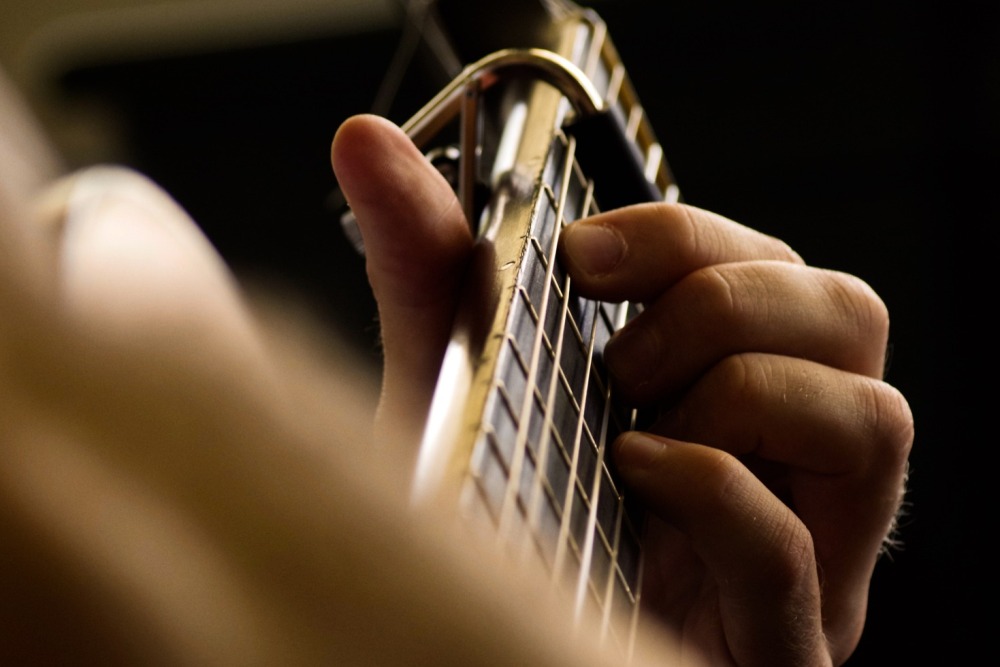
Learning to play the guitar is a journey that combines patience, creativity, and dedication. Whether you are picking up the instrument for the first time or returning after a break, the process can be both exciting and challenging. The guitar offers endless possibilities, from acoustic melodies to electrifying solos, and developing proficiency requires more than just strumming a few chords. Success on the guitar comes from a blend of consistent practice, understanding technique, exploring different styles, and cultivating a mindset that embraces growth. In this article, we share five essential tips to help you learn to play the guitar effectively and enjoyably.
Choose the Right Guitar and Equipment
Before diving into practice, it is crucial to select a guitar that matches your goals, body type, and musical preferences. Beginners often benefit from starting with a comfortable acoustic or classical guitar, as they are easier to manage and do not require additional equipment like amplifiers. However, if you are drawn to rock, blues, or jazz, an electric guitar may better suit your aspirations. Beyond the guitar itself, consider quality strings, a tuner, and a sturdy strap, as well as a comfortable practice environment. Ensuring your instrument is properly set up and maintained can prevent frustration and make practicing more enjoyable.
Establish a Consistent Practice Routine
Consistency is key when learning the guitar. Short, focused practice sessions several times a week are far more effective than sporadic, lengthy sessions. Start with a structured plan that includes warm-ups, scales, chord practice, and song learning. Use a metronome to build timing and rhythm, gradually increasing speed as you improve. Keeping a practice journal or tracking progress with recordings can help you identify areas that need improvement and celebrate milestones along the way. Developing a routine instills discipline and ensures steady growth over time.
Learn Music Theory and Techniques
Understanding the fundamentals of music theory can dramatically accelerate your progress. Learning how chords are constructed, how scales work, and how different keys relate to each other will give you the tools to play confidently in any context. In addition, mastering essential guitar techniques such as fingerpicking, strumming patterns, slides, hammer-ons, and pull-offs adds versatility to your playing. Practicing these techniques slowly and deliberately ensures accuracy and builds muscle memory, which will allow you to execute more complex passages effortlessly in the future.
Play Along and Explore Different Styles
One of the most effective ways to improve your guitar skills is to play along with recordings or backing tracks. This helps you develop timing, ear training, and an understanding of how guitar parts fit into broader musical arrangements. Exploring various genres, from folk and classical to blues and rock, broadens your musical vocabulary and keeps practice sessions engaging. Experimenting with different styles also challenges you to adapt techniques and rhythms, fostering creativity and making you a more well-rounded guitarist.
Stay Patient, Motivated, and Seek Feedback
Learning the guitar is a gradual process, and progress may not always feel immediate. Staying patient and maintaining a positive mindset are essential for long-term success. Set realistic goals and celebrate small achievements to stay motivated. In addition, seeking feedback from teachers, online communities, or fellow musicians can provide valuable insights, correct bad habits early, and inspire new approaches. Remember that perseverance and curiosity often distinguish accomplished guitarists from casual players, so embrace the journey and enjoy each step of improvement.
Mastering the guitar is a rewarding experience that combines discipline, creativity, and a love for music. By choosing the right equipment, establishing a consistent practice routine, understanding music theory, exploring different styles, and maintaining patience and motivation, you can steadily improve your skills and enjoy every moment of the learning process. The key is to remain engaged, challenge yourself, and celebrate your progress, turning practice into an enjoyable and transformative musical journey.
MORE ON THE FLASH LIST
































